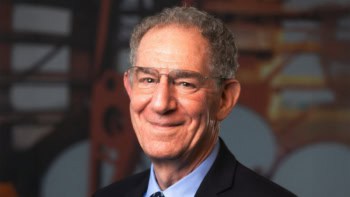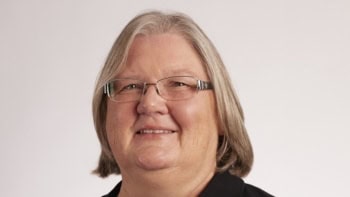
The future of the iconic Arecibo Observatory is at stake following the resignation of Robert Kerr, the facility’s director and principal investigator. Kerr’s departure is reportedly because of the way the National Science Foundation (NSF), which owns the observatory, has sought alternative sources of funding to keep the facility running.
The NSF is facing tight budget constraints following the construction of new facilities such as the Large Synoptic Survey Telescope in Chile. In late October, the foundation sent a letter to the scientific community requesting “viable concepts for the future [of Arecibo]” by the end of the year. Arecibo is a 52-year-old radio telescope with a 305 m collection dish built into a sinkhole depression in Puerto Rico.
Funding cuts
Although work carried out at the facility led to Russell Hulse and Joseph Taylor winning the 1993 Nobel Prize for Physics for discovering the first binary pulsar, a 2006 report from the NSF recommended reducing Arecibo’s annual funding from $10.5m to $4.0m. After lobbying by researchers, the NSF was able to cobble together sufficient funds to keep the observatory open. NASA, for example, adds funding of $2m each year to support the hunt for asteroids that could threaten Earth.
But the financial pressures continue, as funds for Arecibo’s operation compete with research grants for astronomers. The observatory’s situation was not helped by the need for repairs following a magnitude-six earthquake that hit the facility in January 2014.
Search for intelligent life
Earlier this year, Kerr, who had been director since 2011, thought he had a solution: the Breakthrough Listen project – a 10-year, $100m search for intelligent life in the universe that was set up by the Russian entrepreneur Yuri Milner in July. Later that month, Kerr told Scientific American that the project offered to buy observing time on the radio telescope. Yet the NSF – Kerr claims – indicated that accepting the deal would mean the loss of further NSF funding, an action that could, according to Kerr, lead to the “cessation of science operations, and possibly closure”.
The NSF has denied that threat, although it concedes that it could reduce funding if an organization such as Breakthrough Listen takes up some of Arecibo’s observing time. Kerr says that the NSF and SRI International – the contractor that operates the facility together with academic partners – withdrew contact with him following his comments in Scientific American. Kerr resigned as director in October after losing his position as principal investigator.
Astronomer Michael Nolan of the University of Arizona’s Lunar and Planetary Laboratory, who preceded Kerr as Arecibo director, told physicsworld.com that since Kerr stepped down, SRI International has sent in management staff to keep the facility running. Nolan admits that he does not know of any organization that would be willing to take over the operation of Arecibo from the NSF.



